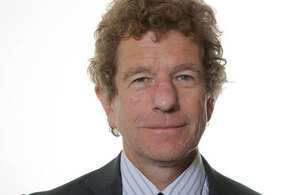New powers for families of missing people
A new law will help families deal with the fall out of a loved one going missing – in plans announced by Justice Minister Lord Faulks QC.

On top of the trauma of someone going missing, families have faced the uncertainty and confusion of not knowing what will happen to their absent loved one’s property and financial affairs, and have been powerless to do anything about it.
The new legal powers will mean families can step in, take control, and safeguard their loved one’s assets in their absence – for example being able to suspend direct debits for mobile phone and utility bills or to make mortgage payments.
Justice Minister Lord Faulks said:
When someone suddenly disappears, their affairs can be thrown into disarray, adding to the distress and emotional heartbreak experienced by family members.
That is why I am pleased to announce new measures that will give legal powers to families, allowing them to take charge of their missing family member’s property and financial affairs.
Following an overwhelmingly positive response to proposals the government hopes that legislation will be brought forward without delay in the new parliament.
The provisional proposals were developed by the Ministry of Justice with the help of the leading charity in this field, Missing People, and their pro bono lawyers, Clifford Chance LLP.
Susannah Drury, Director of Policy and Advocacy for Missing People, said:
Today’s announcement is a huge step forward for missing people and their families left behind. Until now these families have been powerless to stop the lives that they hope their missing loved ones will return to from falling apart.
On behalf of everyone whose lives will be improved by this new law, we would like to thank the team at the Ministry of Justice, Clifford Chance and the many families who have campaigned tirelessly to get to this point.
The key features of the proposed scheme will be:
- a guardian will be appointed by a court on application by a person with a sufficient interest in the property and affairs of the missing person
- the appointment can be made if it seems likely that a decision will need to be made regarding the property and affairs of the missing person
- a guardian will be required to act in the best interests of the missing person and in this respect will be subject to duties similar to those of a trustee
- the guardian will be supervised by the Office of the Public Guardian and will be required to file accounts in much the same way as a deputy appointed under the Mental Capacity Act 2005
- the appointment will be for a period of up to 4 years with the possibility of applying for an extension for up to another 4 years
This follows the introduction of certificates of presumed death which are equivalent to death certificates and allow families to resolve a loved one’s affairs when he or she is thought have died. The certificates were introduced on 1 October 2014 and can be applied for by relatives.
Notes to editors
- ‘Missing Children and Adults: A Cross Government Strategy’ was published in December 2011. It committed the government to ensuring there are appropriate systems in place for families to deal with the legal and financial problems faced by those left behind following a disappearance; the consultation on guardianship proposals published in August 2014 forms part of this work.
- Data on the number of people who go missing in England and Wales together with indications from other jurisdictions on the use of their legislation, suggest that if similar provisions were created in England and Wales there would be between 50 and 300 appointments annually.
- The consultation closed on 18 November 2014 and the response has been published today. View the response paper: Guardianship of the Property and Affairs of Missing Persons
- The Presumption of Death Act 2013, which addresses the situation where missing persons are presumed to be dead, took effect on 1 October 2014.
- The charity Missing People supports missing persons and their families to explore their options and, where possible, to reconnect. For those left behind they provide specialised support to ease the heartache and confusion, and help search for their missing loved ones.